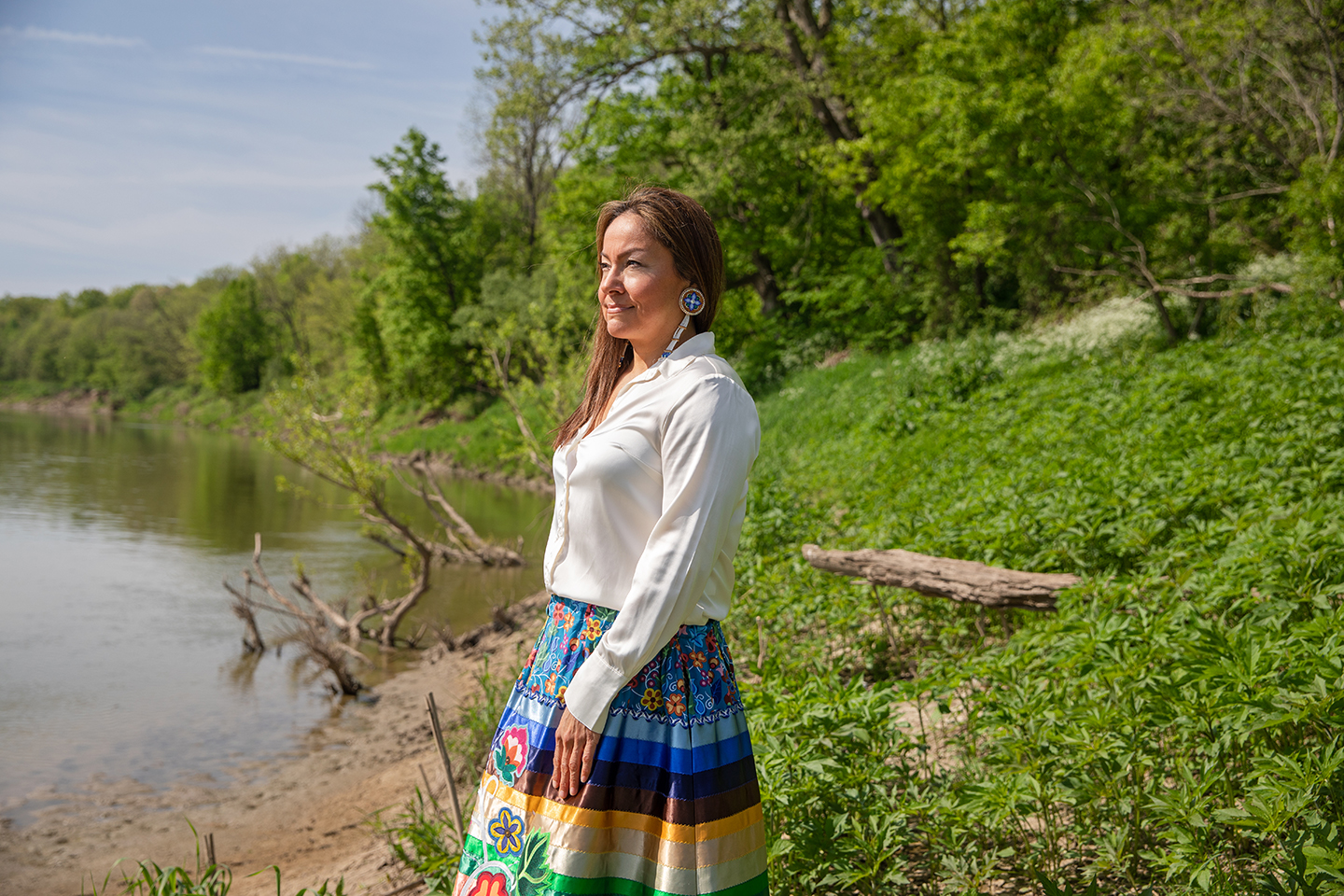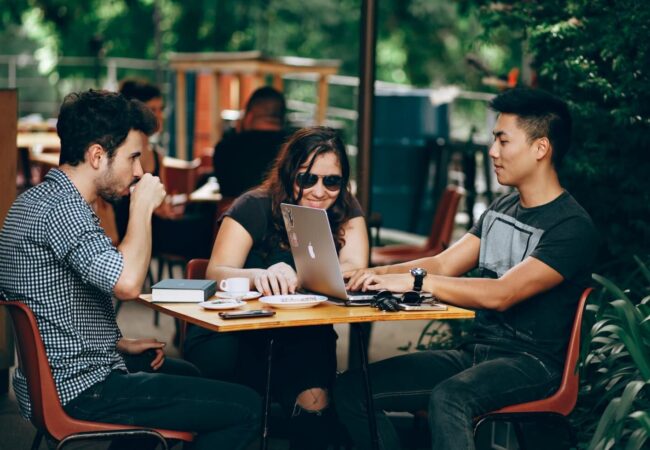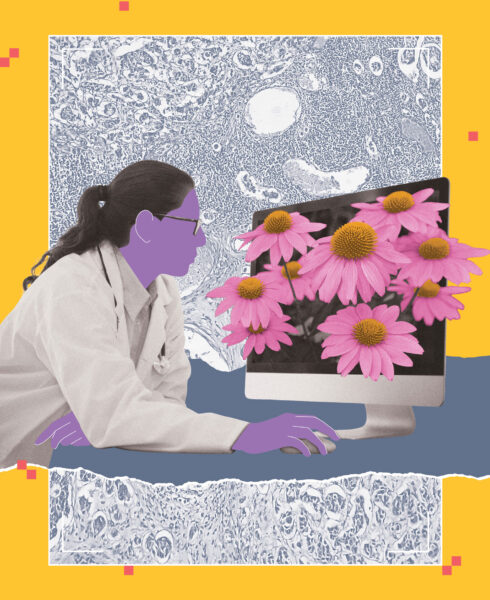Since the age of eight, Dawn-Estelle Miskokomon has wanted to find ways to protect First Nations children.
“At that age, I already understood how life was unfair to First Nations children,” says Miskokomon, who was born and raised in Bkejwanong, or Walpole Island First Nation. Miskokomon now embraces her home and community in Deshkan Ziibiing, or Chippewas of the Thames First Nation, in southwestern Ontario, where she lives with her family.
In the years since her vision for change, Miskokomon has focused her career on ensuring the safety and well-being of First Nations children in both Bkejwanong, Deshkan Ziibiing, a collaborative network of local First Nations communities, and in local urban settings. Anishinaabe ways of knowing and being are central to Miskokoman’s advocacy work with Indigenous children and their families.
Integrating Indigenous knowledge into policy and practice
Now Miskokomon (master’s in Early Childhood Studies ’21) is in the first cohort of Toronto Metropolitan University’s new Urban Health PhD program in the Faculty of Community Services. She is studying how Anishinaabe ways of knowing and being may be actualized within the Canadian system when applying the Truth and Reconciliation Commission’s 94 calls to action.
Miskokomon intends to focus on London, Ont., the urban centre closest to Deshkan Ziibiing, and its larger child-focused initiatives. Her work will be informed by the historical relationship between London and Deshkan Ziibiing, where First Nations children who attended the Mount Elgin Industrial Institute residential school were forced to do manual labour.
The relationship is still problematic, with the polluted Thames River travelling south-west from London through Deshkan Ziibiing and neighbouring First Nations communities, which have been and continue to be under a boil-water advisory. Miskokomon’s community has been under the boil water advisory since December 2021.
“When we think about urban health and how we invest in knowing about the health and well-being of First Nations children, health initiatives aren’t always made with First Nations youth in mind and so colonial impacts, like water pollution and residential school trauma, aren’t factored into the concept of health in these programs,” Miskokomon says.
“I want to be able to get to this place where we create the platform that reveals to us how it is we can work better together.”






